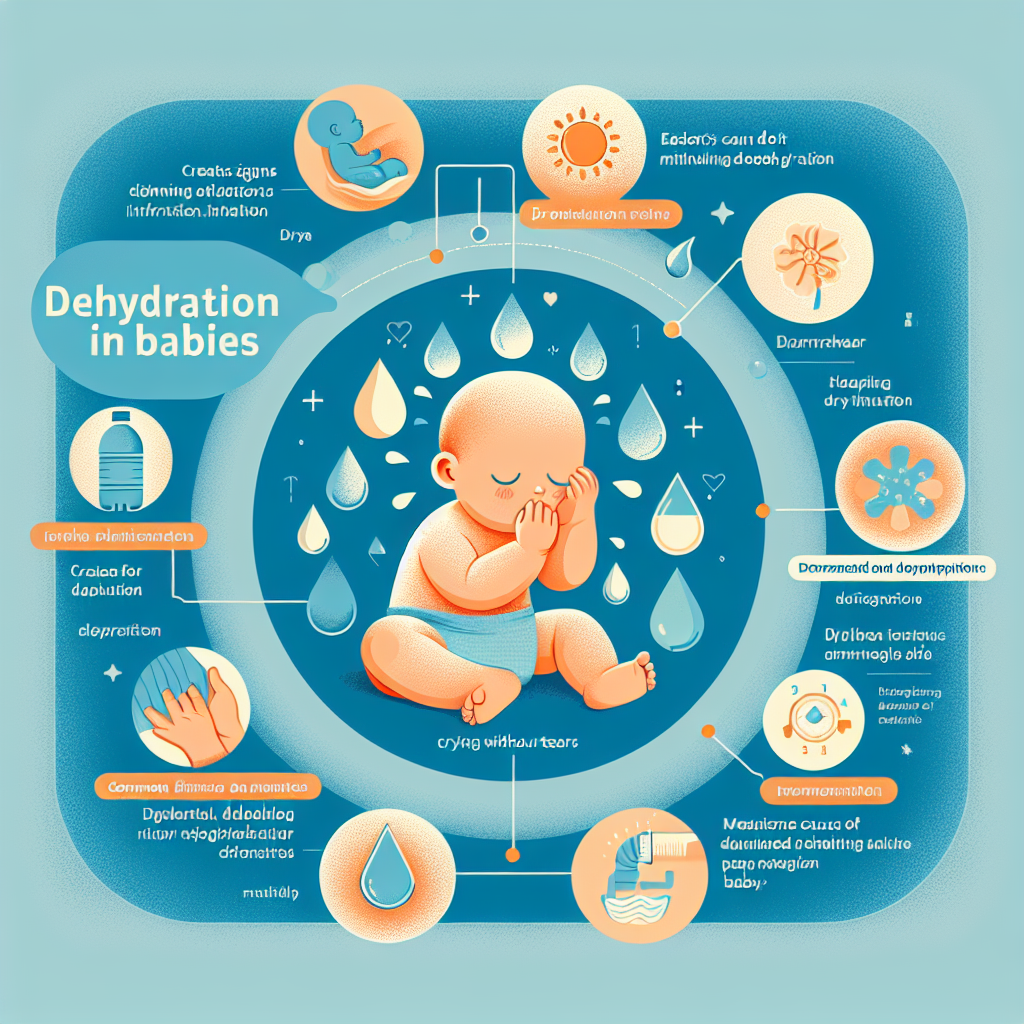Dehydration in Babies: Signs, Symptoms and Solutions
When it comes to caring for babies, parents are often concerned with their feeding, sleep and development. But a common problem that can go unnoticed is dehydration. Dehydration in babies can have serious consequences for their health. In this article, we'll explore the signs, symptoms, and solutions to prevent and treat dehydration in little ones.
Signs of Dehydration in Babies
Identifying early signs of dehydration in babies is crucial to prevent complications. One of the most obvious indications is a decrease in the frequency of urination. A healthy baby should have six or more wet diapers in a day. Other warning signs include dry skin and lack of tears when crying. Babies may also become irritable and sleepy, show little interest in feeding, and have a congested fontanel (soft head).
Symptoms of Dehydration in Babies
In addition to the signs already mentioned, it is important to pay attention to the more subtle symptoms of dehydration in babies. These may include dry lips and tongue, rapid breathing, or skin that does not return to its original shape immediately after being gently squeezed. A dehydrated child may also have a paler skin color and display unusual lethargy.
Solutions to Prevent Dehydration in Babies
The best way to combat dehydration is to prevent it before it becomes a problem. It is essential that babies get enough fluids through regular breastfeeding or age-appropriate formula milk. On hot days or when babies are sick and losing fluids through fever or diarrhea, it's important to be even more vigilant about giving extra fluids.
Treating Dehydration in Babies
If you suspect your baby is dehydrated, it's important to act quickly. Offer fluids in small but frequent portions, such as breastfeeding or formula. In mild cases of dehydration, oral rehydration solutions available at pharmacies can be helpful. However, if symptoms persist or worsen, it is crucial to see a doctor as soon as possible.
Conclusion
Identifying and treating dehydration in babies is essential to their health and well-being. By monitoring signs and symptoms and applying the appropriate solutions, you can ensure that your baby stays hydrated and healthy. If you have any questions or concerns, do not hesitate to seek the advice of a health professional. Subscribe to our newsletter for more baby care tips and visit our store to find the products you need to keep your baby properly hydrated.














































































































































